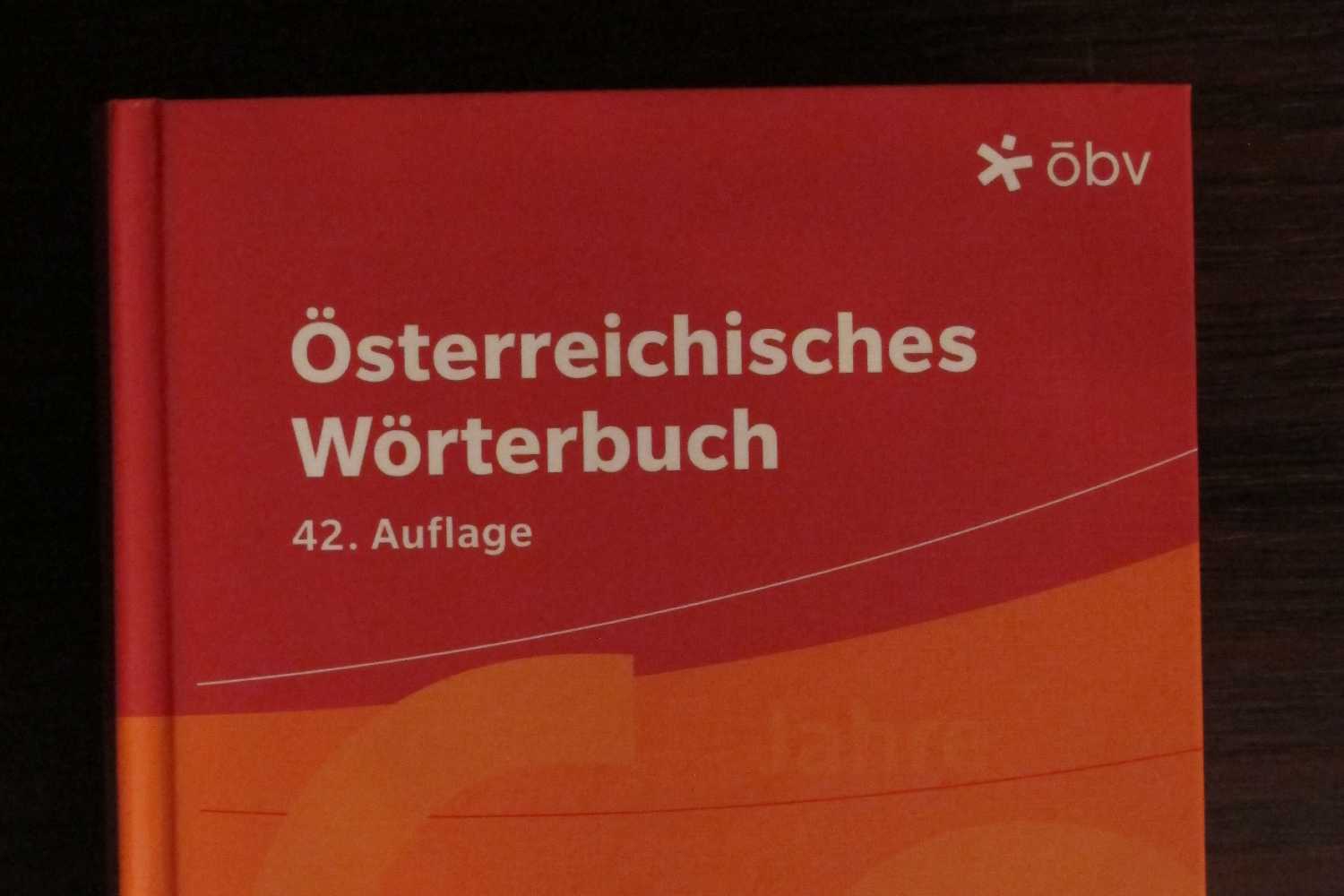EXPLAINED: The language requirements for studying in Austria

Austria and neighbouring Germany are sought-after destinations for international students looking to pursue their education abroad.
Austria and Germany are highly sought-after destinations for international students looking to pursue their education abroad.
The most recently published figures in Austria from the 2020-2021 academic year show a total of 106,000 international students, a 5.14 percent increase on the previous year.
Universities in the German-speaking world are renowned worldwide, boasting strong connections with employers post-graduation and offering generous scholarships to eligible international students.
What are the entry requirements for Bachelor degrees?
To embark on a bachelor’s degree journey in Austria, you need to hold a higher education entrance qualification, known as ‘Hochschulzugangsberechtigung’.
However, if you lack this qualification or your leaving certificate is not recognised, you have the option to enrol in a foundation course at a ‘Studienkolleg’.
What are the language requirements?
Austria's language requirements are aligned with the European Framework of Reference for Languages (see more here: https://www.efset.org/cefr/). Entrance requirements may vary depending on the program:
- Studienkollegs: If you plan to attend a Studienkolleg, you typically need to possess a language proficiency level of B1 or B2 in German.
- Other Bachelor’s Degrees: For most bachelor’s programs, a higher proficiency level of C1 in the German language is usually required. Some universities in Austria though may accept a B2 level, depending on the program.
How can I prove my language level?
Several standardised tests can be taken to demonstrate your C1 level of proficiency. These tests are widely recognised by universities in Austria:
- Deutsch als Fremdsprache (TestDaF)
To meet the C1 level requirement, you should aim for a TestDaF score of TDN 4.
This test evaluates your proficiency in reading, writing, listening, and speaking.
Achieving TDN 4 in all four areas is essential.
TestDaF is available at over 500 centres in 100 countries and is accepted by all Austrian universities.
You can expect to receive your TestDaF certificate approximately six to eight weeks after taking the exam.
- Deutsche Sprachprüfung für den Hochschulzugang (DSH)
If you opt for the DSH exam, you will need to score at least Level 2 (DSH-2) or higher to prove C1 competence.
This assessment consists of a written exam (administered first) followed by an oral exam for those who pass the written component.
DSH exams are conducted at individual universities and preparatory colleges, and you are not necessarily required to take the exam at the university where you intend to study.

An Austrian language (i.e. Austrian German) book. Photo: Von Agruwie - Eigenes Werk, CC
Wikicommons
- Goethe-Zertifikat
The Goethe-Zertifikat examination can be taken at any of the Goethe-Instituts worldwide - including in Vienna - or through their exam partners locally.
While the pass mark may vary depending on the administering institution, it typically falls around 60 percent to 65 percent.
It’s advisable to check with your university before beginning your course of study, as they may consider this certificate as an exemption from another language entrance exam.
- Österreichisches Sprachdiplom Deutsch
This is Austria’s officially recognised examination system for German as a foreign language with licensed examination centres worldwide.
The exam consists of two modules, the written exam (reading, listening and writing), and the oral exam.
You can take the individual modules at any time and will receive a certificate for each successfully completed module.
I'm only going to Austria on exchange - are the requirements different?
Although you should still use the same tests to prove your level of language competence, the requirements for different courses vary at different universities.
You should check each university’s admissions page to see their requirements for exchange/Erasmus students.
Although studying to pass these language exams might seem like a Herculean task, starting your preparation early with online courses or with a tutor will put you in a great position.
Studying in Austria can be a rewarding experience for international students, so these tests are just a stepping stone into reaping the benefits of the respective university systems.
However, do be sure to verify the specific language requirements and admission criteria for your chosen university and program, as they can vary.
Comments
See Also
Austria and Germany are highly sought-after destinations for international students looking to pursue their education abroad.
The most recently published figures in Austria from the 2020-2021 academic year show a total of 106,000 international students, a 5.14 percent increase on the previous year.
Universities in the German-speaking world are renowned worldwide, boasting strong connections with employers post-graduation and offering generous scholarships to eligible international students.
What are the entry requirements for Bachelor degrees?
To embark on a bachelor’s degree journey in Austria, you need to hold a higher education entrance qualification, known as ‘Hochschulzugangsberechtigung’.
However, if you lack this qualification or your leaving certificate is not recognised, you have the option to enrol in a foundation course at a ‘Studienkolleg’.
What are the language requirements?
Austria's language requirements are aligned with the European Framework of Reference for Languages (see more here: https://www.efset.org/cefr/). Entrance requirements may vary depending on the program:
- Studienkollegs: If you plan to attend a Studienkolleg, you typically need to possess a language proficiency level of B1 or B2 in German.
- Other Bachelor’s Degrees: For most bachelor’s programs, a higher proficiency level of C1 in the German language is usually required. Some universities in Austria though may accept a B2 level, depending on the program.
How can I prove my language level?
Several standardised tests can be taken to demonstrate your C1 level of proficiency. These tests are widely recognised by universities in Austria:
- Deutsch als Fremdsprache (TestDaF)
To meet the C1 level requirement, you should aim for a TestDaF score of TDN 4.
This test evaluates your proficiency in reading, writing, listening, and speaking.
Achieving TDN 4 in all four areas is essential.
TestDaF is available at over 500 centres in 100 countries and is accepted by all Austrian universities.
You can expect to receive your TestDaF certificate approximately six to eight weeks after taking the exam.
- Deutsche Sprachprüfung für den Hochschulzugang (DSH)
If you opt for the DSH exam, you will need to score at least Level 2 (DSH-2) or higher to prove C1 competence.
This assessment consists of a written exam (administered first) followed by an oral exam for those who pass the written component.
DSH exams are conducted at individual universities and preparatory colleges, and you are not necessarily required to take the exam at the university where you intend to study.

Wikicommons
- Goethe-Zertifikat
The Goethe-Zertifikat examination can be taken at any of the Goethe-Instituts worldwide - including in Vienna - or through their exam partners locally.
While the pass mark may vary depending on the administering institution, it typically falls around 60 percent to 65 percent.
It’s advisable to check with your university before beginning your course of study, as they may consider this certificate as an exemption from another language entrance exam.
- Österreichisches Sprachdiplom Deutsch
This is Austria’s officially recognised examination system for German as a foreign language with licensed examination centres worldwide.
The exam consists of two modules, the written exam (reading, listening and writing), and the oral exam.
You can take the individual modules at any time and will receive a certificate for each successfully completed module.
I'm only going to Austria on exchange - are the requirements different?
Although you should still use the same tests to prove your level of language competence, the requirements for different courses vary at different universities.
You should check each university’s admissions page to see their requirements for exchange/Erasmus students.
Although studying to pass these language exams might seem like a Herculean task, starting your preparation early with online courses or with a tutor will put you in a great position.
Studying in Austria can be a rewarding experience for international students, so these tests are just a stepping stone into reaping the benefits of the respective university systems.
However, do be sure to verify the specific language requirements and admission criteria for your chosen university and program, as they can vary.
Join the conversation in our comments section below. Share your own views and experience and if you have a question or suggestion for our journalists then email us at [email protected].
Please keep comments civil, constructive and on topic – and make sure to read our terms of use before getting involved.
Please log in here to leave a comment.